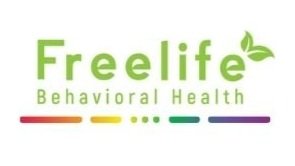Navigating Non-Monogamous Relationships
In a world where relationships come in all shapes and sizes, non-monogamous relationships are gaining recognition and acceptance. For many, they offer a pathway to love, intimacy, and personal growth that traditional monogamous relationships may not provide. However, navigating the complexities of non-monogamy can sometimes feel overwhelming, especially in a society that still predominantly adheres to monogamous norms. This is where compassionate support and understanding become crucial, especially for marginalized communities such as LGBTQ individuals.
At Freelife Behavioral Health, we recognize the importance of providing a safe and inclusive space for all individuals to explore their relationship dynamics, including those in non-monogamous arrangements. Our team of therapists specializes in LGBTQ+ issues, offering tailored support to address the unique challenges faced by gay men and other members of the community.
Gay men's therapy has long been an essential aspect of mental health care, providing a space for individuals to unpack societal expectations, internalized homophobia, and relationship concerns. In the context of non-monogamy, these discussions become even more pertinent, as individuals may grapple with issues of jealousy, communication, and boundaries within their relationships.
Finding community at Freelife goes beyond just shared relationship structures; it's about finding a sense of belonging and acceptance as an LGBTQ individual. Our therapists provide LGBTQ compassionate support, affirming clients' identities and experiences while helping them navigate the unique challenges they may face in a heteronormative society.
In therapy, we explore not only the practical aspects of non-monogamous relationships but also the emotional and psychological dynamics at play. Clients are encouraged to delve into their feelings, desires, and fears, allowing for a deeper understanding of themselves and their partners. Through open and honest communication, individuals can establish healthy boundaries, cultivate trust, and foster intimacy within their relationships.
It's essential to recognize that non-monogamy is not inherently better or worse than monogamy; rather, it's a different approach to love and connection that may resonate with some individuals more than others. Our goal at Freelife is not to promote any particular relationship model but to support our clients in exploring what works best for them and their partners.
As attitudes toward relationships continue to evolve, it's crucial to have spaces where individuals can explore alternative approaches without judgment or shame. At Freelife, we're committed to providing that space for LGBTQ individuals and anyone else seeking compassionate support on their journey towards fulfilling and authentic relationships.
If you're interested in exploring non-monogamous relationships or seeking support as a gay man or member of the LGBTQ community, we invite you to reach out to Freelife Behavioral Health therapists. You're not alone on this journey, and we're here to help you every step of the way.
